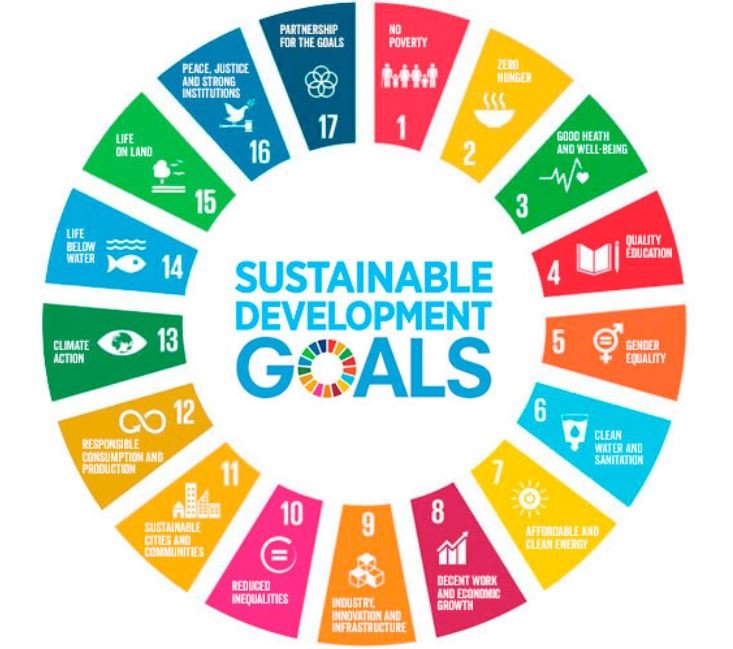Sustainability
Shortcuts and Solution Stimulators for Most Important Sustainability Information:
There is now clear scientific evidence that humanity is living unsustainably, and that an unprecedented collective effort is needed to return human use of natural resources to within sustainable limits.
For humans to live sustainably, the Earth's natural resources must be used at a rate at which they can be replenished (and by limiting global warming). This condition is measured by ecological footprint accounting.
You need to read this:
https://www.theworldcounts.com/challenges/planet-earth/state-of-the-planet/is-the-world-running-out-of-food/story
Here are some %s of solutions here:
Wealthier countries can afford higher and high food prices. Poorer countries have large numbers of citizens who can’t. All poor countries need to strongly encourage the hardest to persuade 0.00000000000000000000000000000000000000001% of people to have 2 children or less (it could be up to 4 children if there is a high probability than only 2 children will survive to 18)
As the world approaches 10 billion people, 100% of the world needs to become vegetarian. This isn’t for idealistic reasons (although these are also true)- this is because the world doesn’t have enough resources for 10 billion people and meat- meat takes too much food supply space. This needs to be supplemented by ways to get prioritised vitamins in meat, especially iron.
Apparently topsoil is really important- farmers need to learn how to farm sustainably so the amount of land for growing food globally doesn’t shrink because of unsustainable farming.
There are solutions to everything if we keep adding %s to them…
The best thing seems to be to persuade the hardest to persuade 0.0000000000000000000000000000000000000000000000000000000001% to do the right thing, permanently.
The only question is whether the world's environmental problems will become resolved in pleasant ways of our own choice, or in unpleasant ways not of our choice, such as warfare, starvation, disease epidemics, and collapses of societies. Collapse: How Societies Choose to Fail or Survive.
In the 1987 Brundtland Report, sustainable development was defined as “development that meets the needs of the present without compromising the ability of future generations to meet their own needs”.
https://en.wikipedia.org/wiki/File:World-energy-consumption-by-fuel-projections-1990---2035-USDOE-IEA-2011.png
However- this was in 1987, which was 35 years ago, and sustainable development and environmental terms have kept evolving since then.
What is the optimal definition for sustainable development in this month and year?
Sustainable agriculture- areas of potential interest
Nutrition transition — Cellular agriculture (cultured meat) • Plant-based diet (reducitarianism • veganism • vegetarianism)
Resource depletion relevant to local and global priorities- areas of potential interest
Exploitation of natural resources • Overdrafting (groundwater) •Overexploitation
Consumerism — Consumer capitalism • Planned obsolescence • Over-consumption
Fishing — Blast fishing • Bottom trawling • Cyanide fishing • Ghost nets • Illegal, unreported and unregulated fishing • Overfishing • Shark culling • Shark finning • Whaling
Logging — Amazon Rainforest • Deforestation • Clearcutting • Illegal logging
Mining — Acid mine drainage • Environmental impact of hydraulic fracturing • Mountaintop removal mining • Slurry impoundments
Water (depletion) — Anoxic waters • Aral Sea • California Water Wars • Dead Sea • Lake Chad • Water scarcity
Sustainable agriculture- areas of potential interest
Nutrition transition — Cellular agriculture (cultured meat) • Plant-based diet (reducitarianism • veganism • vegetarianism)
Soil quality- this is also highly connected to sustainability and global food capacity- soil quality should definitely be in the world’s top 20 environmental priorities both now and forever
Conservation- areas of potential interest
Where do we draw the line with goals to resources?
What are the 20 more specific areas that are most prioritised and why?
Ecosystems — Anoxic waters • Biodiversity • Biosecurity • Coral bleaching • Black carbon • Edge effect • Habitat destruction • Organic farming • Habitat fragmentation • In-situ leach
Fishing — Blast fishing • Bottom trawling • By-catch • Cetacean bycatch • Gillnetting • Illegal, unreported and unregulated fishing • Environmental effects of fishing • Marine pollution • Overfishing • Whaling
Forests — Clearcutting • Deforestation: reforestation and afforestation • Illegal logging • Trail ethics
Natural resources — Resource depletion • Exploitation of natural resources • Steady-state economy • Waste hierarchy
Species — Endangered species • Genetic diversity • Habitat destruction • Holocene extinction • Invasive species • Poaching • Pollinator decline • Species extinction • Threshold host density • Wildlife trade • Wildlife disease
Energy conservation — Alternatives to car use • Efficient energy use • Carfree city • Energy hierarchy • Local food
Renewable energy — Renewable energy commercialization
Recreation — Protected areas
Water conservation



